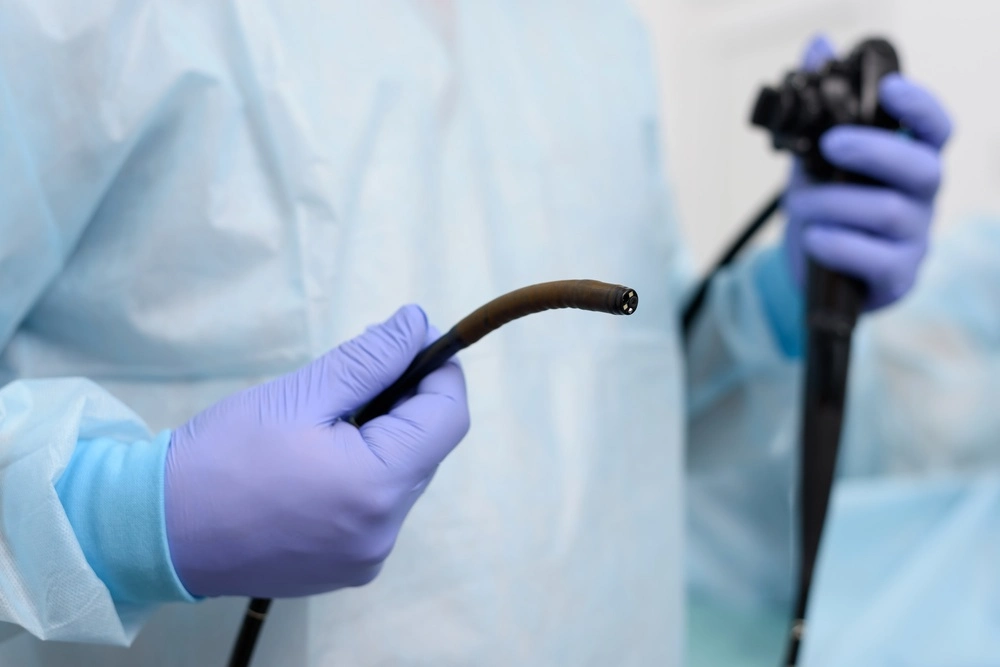An endoscopy is a minimally invasive diagnostic procedure that allows doctors to examine the digestive tract using a flexible tube with a camera. This tool provides a detailed view of the esophagus, stomach, and intestines, making it invaluable for identifying a wide range of gastrointestinal (GI) conditions.
Common Conditions Diagnosed with an Endoscopy
Endoscopy is often used to diagnose the following diseases and conditions:
- Acid Reflux and GERD
An endoscopy can reveal inflammation or damage in the esophagus caused by acid reflux or gastroesophageal reflux disease (GERD). - Ulcers
Gastric or duodenal ulcers, which are sores in the stomach lining or small intestine, can be detected and assessed during an endoscopy. - Barrett’s Esophagus
This precancerous condition, caused by chronic GERD, involves changes in the esophageal lining that can be identified with an endoscopy. - Celiac Disease
Endoscopy is used to obtain small intestine tissue samples to confirm celiac disease, an autoimmune disorder triggered by gluten. - Esophagitis
Inflammation of the esophagus, often caused by acid reflux, allergies, or infections, can be identified during an endoscopic examination. - Cancer Detection
Endoscopy is a critical tool for detecting cancers of the esophagus, stomach, and upper digestive tract. Tissue samples can be collected for additional evaluation. - Hiatal Hernia
This condition, where part of the stomach pushes through the diaphragm, can be visualized during an endoscopic procedure. - Polyps
Polyps in the stomach or intestines, which may be benign or precancerous, can be identified and sometimes removed during the procedure. - Gastrointestinal Bleeding
An endoscopy helps pinpoint the source of bleeding in the digestive tract, such as ulcers or varices. - H. Pylori Infection
A biopsy taken during an endoscopy can confirm the presence of Helicobacter pylori, a bacteria linked to ulcers and stomach cancer. - Inflammatory Bowel Diseases (IBD)
Conditions like Crohn’s disease and ulcerative colitis can be assessed for inflammation and damage using an endoscope. - Esophageal Strictures
Narrowing of the esophagus, often due to scarring from acid reflux or other conditions, can be diagnosed and treated with dilation during an endoscopy.
When Is an Endoscopy Recommended?
An endoscopy may be recommended by your doctor if you are experiencing:
- Persistent heartburn or acid reflux
- Difficulty swallowing
- Unexplained abdominal pain
- Chronic nausea or vomiting
- Blood in stool or vomit
- Unintended weight loss
- Suspected celiac disease
Benefits of Early Diagnosis
By using endoscopy, healthcare providers can:
- Detect conditions in their early stages.
- Begin treatment promptly to prevent complications.
- Monitor ongoing conditions for changes or progression.
How to Prepare for an Endoscopy
Before undergoing an endoscopy, follow these steps:
- Refrain from consuming food or drinks for several hours before the procedure.
- Discuss medications with your doctor, as certain drugs may need to be paused.
- Arrange for someone to drive you home, as sedation is often used during the procedure.
Conclusion
Endoscopy is a versatile and effective tool for diagnosing a wide range of GI diseases, from acid reflux to cancer. It provides critical insights that guide treatment and improve outcomes.
If you’re experiencing persistent gastrointestinal symptoms, contact Digestive Disease Consultants of Orange County to schedule an endoscopy and take the first step toward better digestive health.

